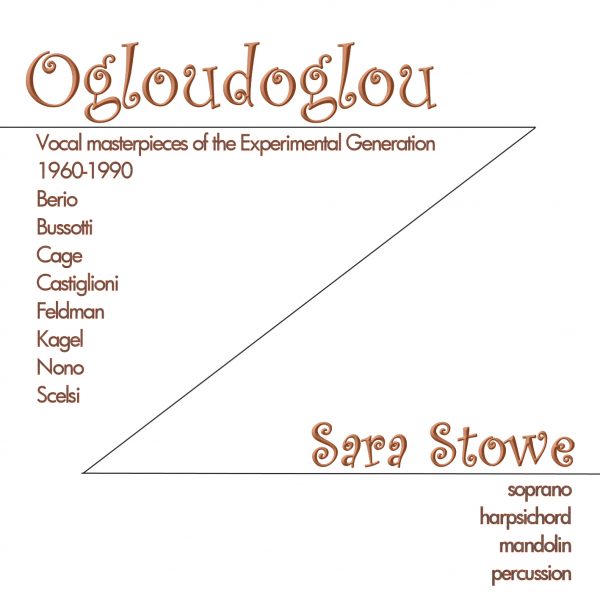The Arts Desk
Soprano Sara Stowe’s unhinged anthology features solo vocal works composed between the early 1960s and mid-1980s, a period when singers like Cathy Berberian and Michiko Hirayama were pushing vocal techniques in unexpected directions. Hirayama, a Japanese soprano renowned for her “dirty voice” and a four octave range, worked closely with Giacinto Scelsi, a reclusive Italian maverick famed for wearing a fur hat and coat in the blazing heat and recording his improvised compositions on to audio tape for transcription by willing assistants. Four of his short vocal pieces are included here. Ogloudoglou is typical: three minutes of inventive nonsense vocalising, Stowe multitasking on untuned percussion. That it’s satisfying as music is down to Stowe – perform this repertoire with this much conviction and it works. Berio’s Sequenza III, written for Berberian, is much better known, its shrieks, clicks and whisperings slowly metamorphosing into recognisable text.
Mauricio Kagel’s Recitativerie for singing harpsichordist is genuinely funny, Stowe’s left hand banging out snatches of Chopin while she’s delivering Kagel’s nonsense text in sprechtstimme. The most substantial number is Luigi Nono’s La Fabbrica Illuminata, Stowe partnered with a tape of sounds and voices recorded in a Genova steelworks. The texts criticise conditions in the plant, a place where “for eight hours the worker only gets paid for two.” An excerpt from the score of Sylvano Bussotti’s Lachrimae per Ogni Voce is included in the booklet. It’s an exquisite piece of graphic art, leaving one desperate to learn exactly how Stowe makes sense of it. Two short pieces by Niccolo Castiglioni are included, along with John Cage’s attractive, pentatonic Sonnekus. Plus Morton Feldman’s Only, a disarmingly beautiful setting of a Rainer Maria Rilke sonnet. An ear-stretching collection, funny, disturbing and entrancing by turns. Stowe really believes in this repertoire, and she takes us with her.
@divineartrecordingsgroup
A First Inversion Company
Registered Office:
176-178 Pontefract Road, Cudworth, Barnsley S72 8BE
+44 1226 596703
Fort Worth, TX 76110
+1.682.233.4978












